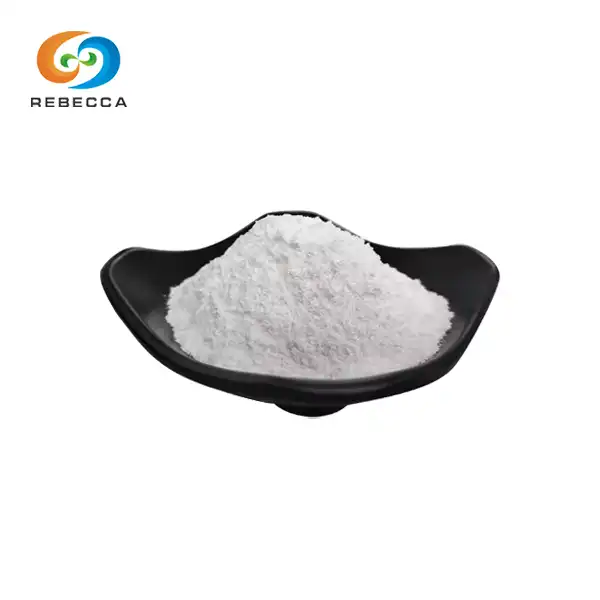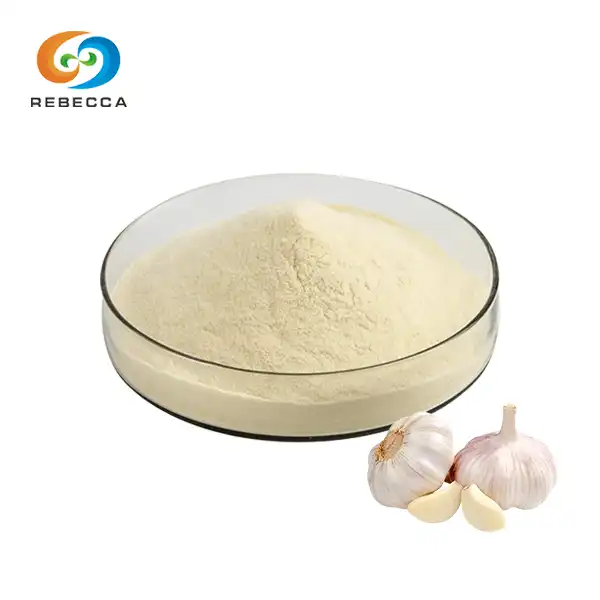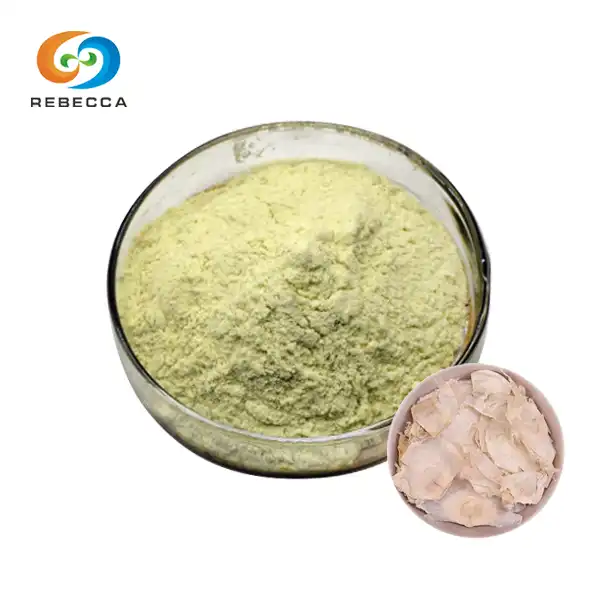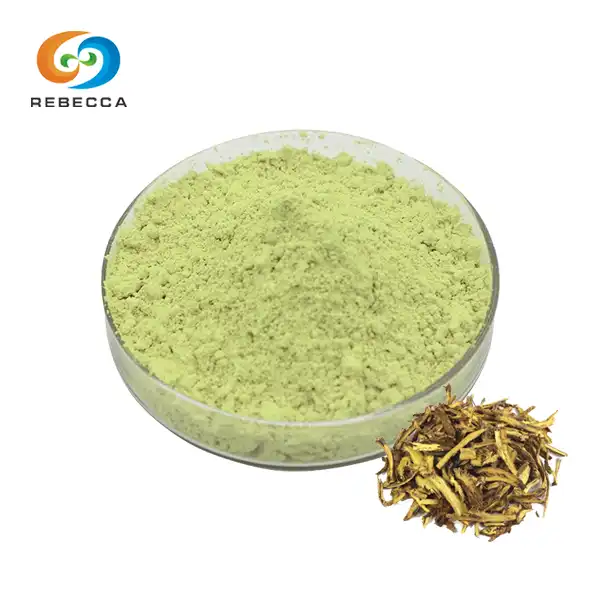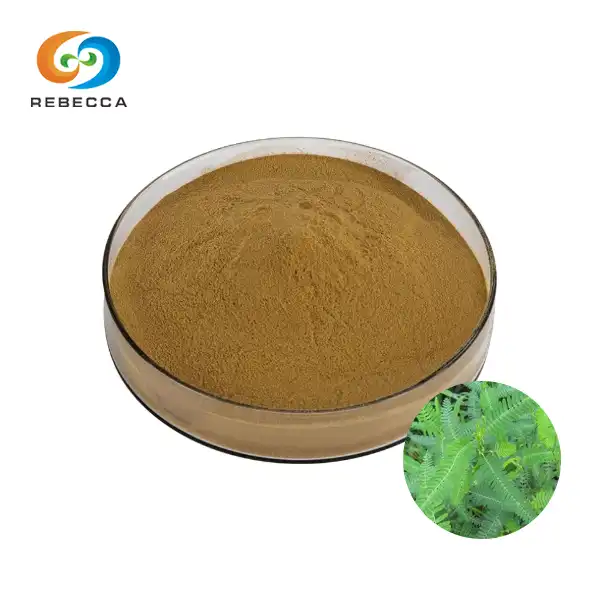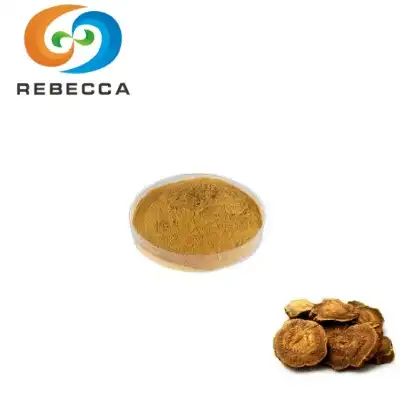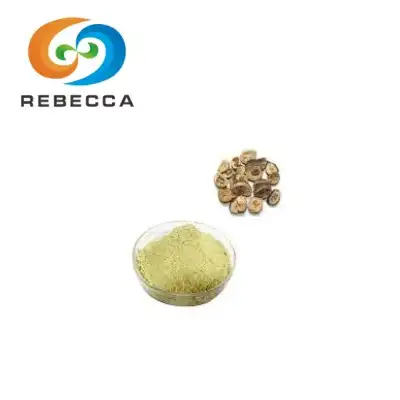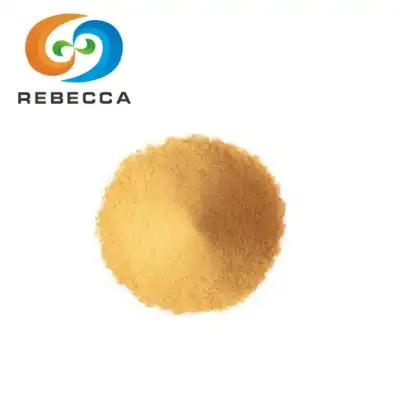Is yeast beta glucan gluten free?
For those with gluten sensitivities or celiac disease, understanding the gluten content of various supplements and ingredients is crucial. One such ingredient that often raises questions is yeast beta glucan powder. In this comprehensive guide, we'll explore the relationship between yeast beta glucan and gluten, addressing common concerns and providing valuable insights for health-conscious consumers.
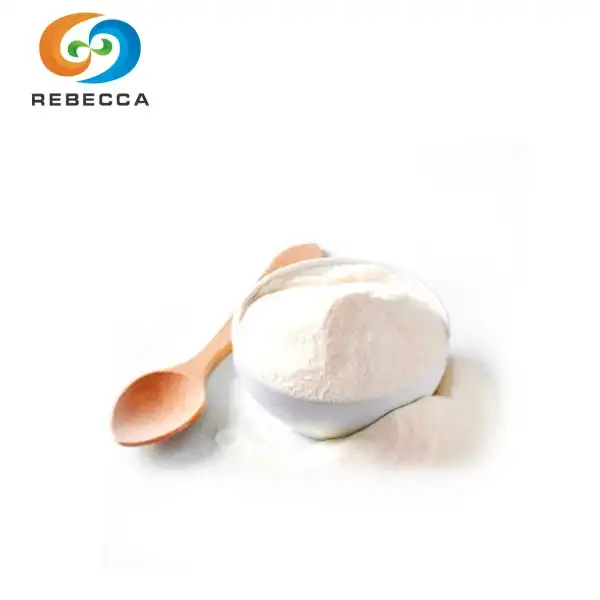
Yeast Beta Glucan Powder
【English name】: Yeast Beta Glucan Powder
【Other name】: Beta-(1,3)-D-Glucan ; yeast dextran
【CAS No.】: 9012-72-0
【Molecular Formula】: (C 6 H 10 O 5 ) N
【Active ingredients】: Beta-1,3-1,6 Glucan
【Specification】: ≥70%
【Grade】 :Food Grade / Cosmetic Grade
【Appearance】: Off-white or yellowish powder
【Mesh size】:80 Mesh
【Test Method】: HPLC
Naturally Gluten-Free
The good news for those seeking gluten-free options is that yeast beta glucan is naturally gluten-free. This powerful immunomodulator is derived from the cell walls of specific strains of yeast, primarily Saccharomyces cerevisiae. While yeast is sometimes associated with gluten-containing products like bread, the beta glucan extracted from yeast does not contain gluten proteins.
Yeast beta glucan powder, a popular form of this supplement, is composed of complex polysaccharides that are structurally different from the proteins found in wheat, barley, and rye – the primary sources of dietary gluten. This fundamental difference in composition ensures that pure yeast beta glucan is inherently gluten-free.
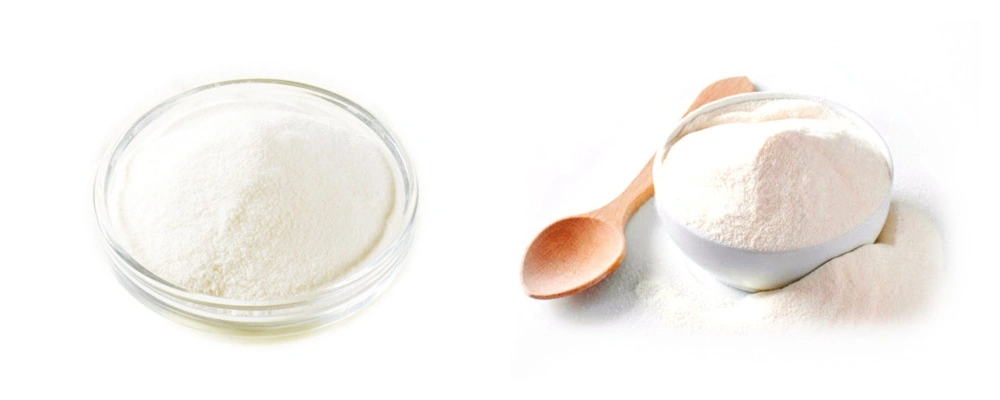
Gluten, Yeast, and Beta-Glucan Are Not Intrinsically Linked
It's important to understand that while yeast is often used in baking bread, which typically contains gluten, yeast itself does not contain gluten. The confusion often arises because yeast and gluten are frequently found together in baked goods. However, in the context of yeast beta glucan supplements, these components are entirely separate.
Beta-glucan is a type of fiber found in the cell walls of yeasts, fungi, and certain plants. Its structure and properties are distinct from those of gluten proteins. While gluten is known for its elasticity and binding properties in baking, beta-glucan is valued for its potential health benefits, particularly its effects on the immune system and cholesterol levels.
The production process for yeast beta glucan powder involves isolating the beta-glucan component from the yeast cells, leaving behind other cellular materials. This extraction process further ensures that the final product is free from any potential gluten contamination that might be present in the yeast's growth medium.
Safety Confirmed by Label
While yeast beta glucan is naturally gluten-free, it's always wise to verify the gluten-free status of any supplement you consume, especially if you have celiac disease or severe gluten sensitivity. Reputable manufacturers of yeast beta glucan powder often take additional steps to ensure their products are safe for those avoiding gluten:
- Gluten-Free Certification: Many producers obtain gluten-free certification from recognized organizations, providing an extra layer of assurance for consumers.
- Clear Labeling: Look for products that clearly state "gluten-free" on the label. In many countries, this claim is regulated and must meet specific standards.
- Third-Party Testing: Some manufacturers conduct additional testing through independent laboratories to verify the absence of gluten in their products.
- Good Manufacturing Practices (GMP): Adherence to GMP standards helps prevent cross-contamination during the production process.
When selecting a yeast beta glucan supplement, it's advisable to choose products from manufacturers who are transparent about their production processes and quality control measures. This transparency not only ensures the product's gluten-free status but also speaks to the overall quality and safety of the supplement.
It's worth noting that while yeast beta glucan itself is gluten-free, some formulations may include additional ingredients. Always check the full ingredient list to ensure all components meet your dietary requirements.
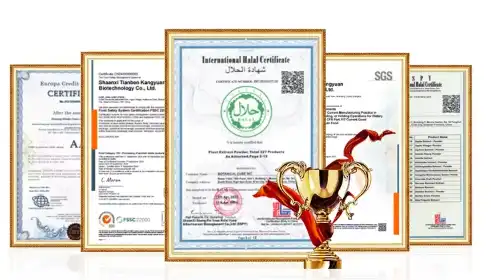
The Benefits of Yeast Beta Glucan Powder
Understanding that yeast beta glucan is gluten-free opens up its potential benefits to a wider audience, including those with gluten sensitivities. Yeast beta glucan powder, with its high concentration of active ingredients, offers several potential health advantages:
- Immune System Support: Beta-glucans are known for their ability to modulate the immune system, potentially enhancing its response to various challenges.
- Cholesterol Management: Some studies suggest that beta-glucans may help in maintaining healthy cholesterol levels.
- Skin Health: When applied topically or consumed, beta-glucans may contribute to skin hydration and overall skin health.
- Digestive Health: As a type of soluble fiber, beta-glucans can support digestive health and promote the growth of beneficial gut bacteria.
The versatility of yeast beta glucan powder allows for its incorporation into various products, from dietary supplements to cosmetics, making it accessible for different applications and preferences.
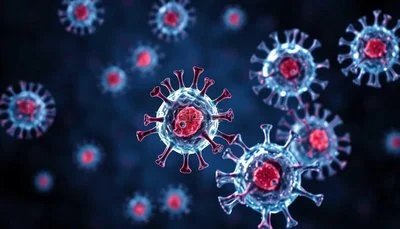

Yeast Beta Glucan Powder Supplier: Rebecca Bio-Tech
For those seeking high-quality Beta-(1,3)-D-Glucan, Rebecca Bio-Tech stands out as a reliable supplier. Specializing in plant extracts and herbal active ingredients, Rebecca Bio-Tech is committed to providing premium, gluten-free yeast beta glucan powder to meet diverse industry needs.
Our yeast beta glucan , also known as Beta-(1,3)-D-Glucan or Beta-(1,3)-D-Glucan (CAS No.: 9012-72-0), boasts a high concentration of active ingredients, with Beta-1,3-1,6 Glucan content of ≥70%. Available in both food and cosmetic grades, our off-white to yellowish powder is finely milled to 80 mesh for optimal use in various applications.
At Rebecca Bio-Tech, we understand the importance of quality and safety. Our production processes adhere to strict quality control measures, ensuring that our Beta-(1,3)-D-Glucan is not only effective but also safe for gluten-sensitive individuals. For inquiries about our products or to discuss your specific needs, please don't hesitate to contact us at information@sxrebecca.com. Our team of experts is ready to assist you in finding the perfect solution for your business.
FAQ
Q1: Can people with celiac disease safely consume yeast beta glucan?
A: Yes, pure yeast beta glucan is naturally gluten-free and safe for people with celiac disease. However, it's always recommended to choose products that are certified gluten-free and to consult with a healthcare provider before adding new supplements to your diet.
Q2: How is yeast beta glucan different from the gluten found in wheat?
A: Yeast beta glucan is a polysaccharide (complex sugar) derived from yeast cell walls, while gluten is a protein found in wheat, barley, and rye. They have different chemical structures and biological functions, making yeast beta glucan safe for those avoiding gluten.
Q3: Are all yeast-derived products gluten-free?
A: Not necessarily. While yeast itself doesn't contain gluten, some yeast-derived products may be grown on media containing gluten or processed in facilities that handle gluten-containing ingredients. It's important to check labels and choose products specifically labeled as gluten-free.
References
1. Stier, H., Ebbeskotte, V., & Gruenwald, J. (2014). Immune-modulatory effects of dietary Yeast Beta-1,3/1,6-D-glucan. Nutrition Journal, 13, 38.
2. Talbott, S. M., & Talbott, J. A. (2012). Baker's yeast beta-glucan supplement reduces upper respiratory symptoms and improves mood state in stressed women. Journal of the American College of Nutrition, 31(4), 295-300.
3. Kogan, G., Pajtinka, M., Babincova, M., Miadokova, E., Rauko, P., Slamenova, D., & Korolenko, T. A. (2008). Yeast cell wall polysaccharides as antioxidants and antimutagens: can they fight cancer?. Neoplasma, 55(5), 387-393.
4. U.S. Food and Drug Administration. (2013). Food Labeling; Gluten-Free Labeling of Foods. Federal Register, 78(150), 47154-47179.
5. Celiac Disease Foundation. (2021). Sources of Gluten.
